YouTube star PewDiePie rejects anti-Semitism claims
- Published
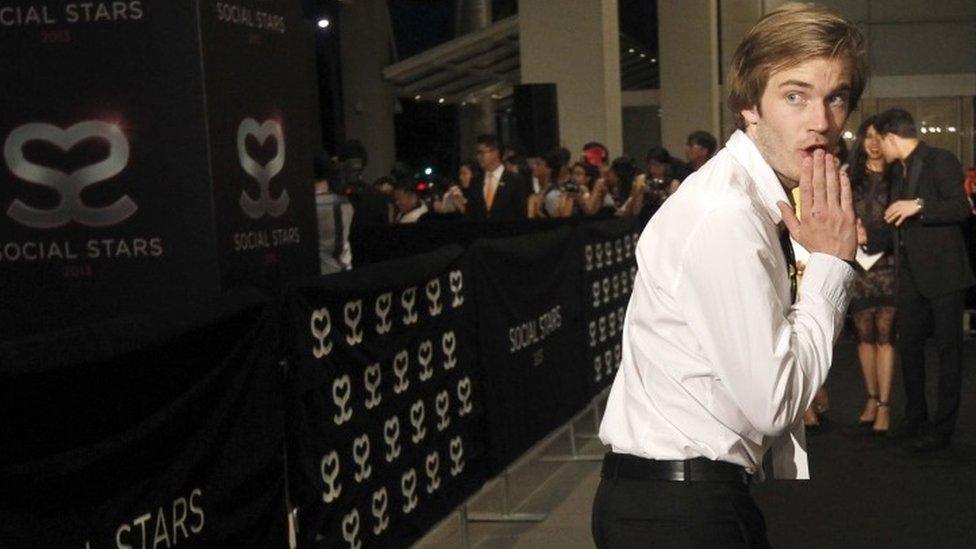
The Swede is reported to have made $15m through YouTube in 2016
The world's highest paid YouTube star, PewDiePie, has defended himself over allegations of anti-Semitism in a new YouTube video.
The Swede said the allegations - which resulted in Disney cutting ties with him - were "insane" and "unfair".
He said any offensive comments he had made were taken out of context and that he had been "blatantly misrepresented".
Some of his videos in the past few months were found to contain Nazi references or anti-Semitic imagery.
PewDiePie, whose real name is Felix Kjellberg, said in his YouTube video, external: "I am sorry for the words I used as I know they offended people."
"I do strongly believe that you can joke about anything, but I also believe that there is a right way and not the best way to joke about things," he said.
He said that as a "rookie comedian" he could take jokes too far.
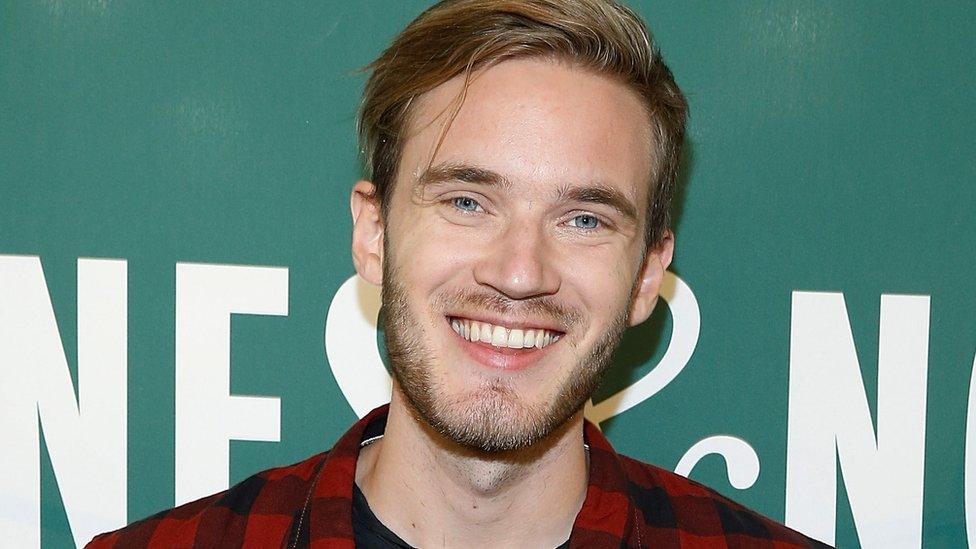
YouTube has cancelled the release of Mr Kjellberg's new series Scare PewDiePie 2
He insisted that he did not support right-wing groups that advocated hatred and that recent articles highlighting his alleged anti-Semitism by newspapers including the Wall Street Journal were personal attacks and attempts to discredit him.
The Swede is reported to have made $15m through YouTube in 2016.
He has been associated with Disney via Maker Studios, a company with a network of YouTube stars. The YouTuber has drawn several billions of views per month and generated vast amounts of income from advertising.
Disney said on Tuesday that while Mr Kjellberg had a reputation for being provocative and irreverent, some of the videos he made were "inappropriate".
In one of the controversial videos, Mr Kjellberg paid two Indians through a crowd-sourcing website to hold up a sign which read "Death to all Jews".
In his response to the criticism, he said he was trying to show how people "would say anything for $5".
In other videos he also showed swastikas drawn by a fan, played the Nazi Party anthem and did a brief Hitler salute - all of which he says was done as a joke and taken out of context.
Mr Kjellberg said that he had been accused of "normalising hatred" in the jokes, whereas in fact it was his media critics who were doing this by their unfair attacks on him.
YouTube itself said earlier that it had cancelled the release of Mr Kjellberg's new series Scare PewDiePie 2, and had dropped him from its Google Preferred scheme, which highlights advertiser-friendly content creators.
In 2016, PewDiePie was temporarily suspended from Twitter after making jokes about so-called Islamic State.
- Published14 February 2017

- Published2 February 2017
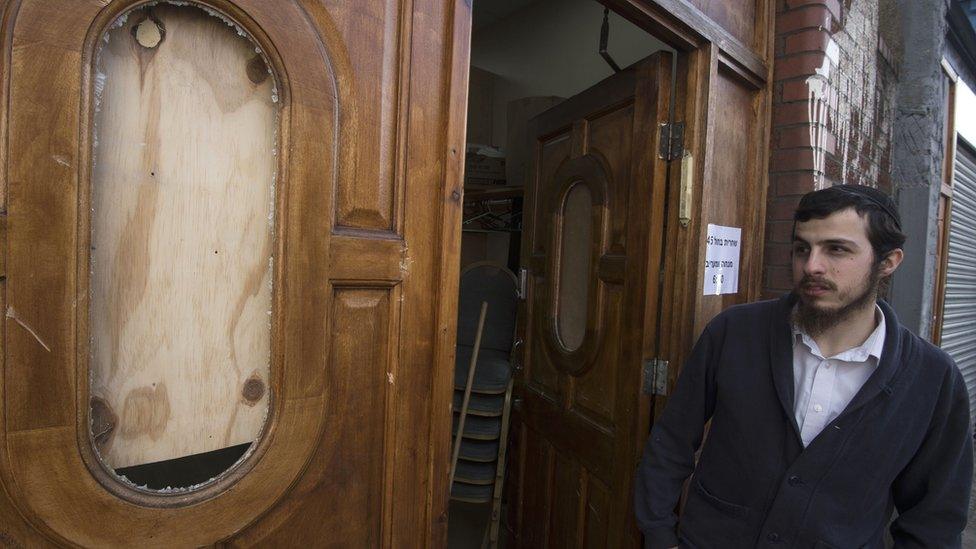
- Published7 December 2016
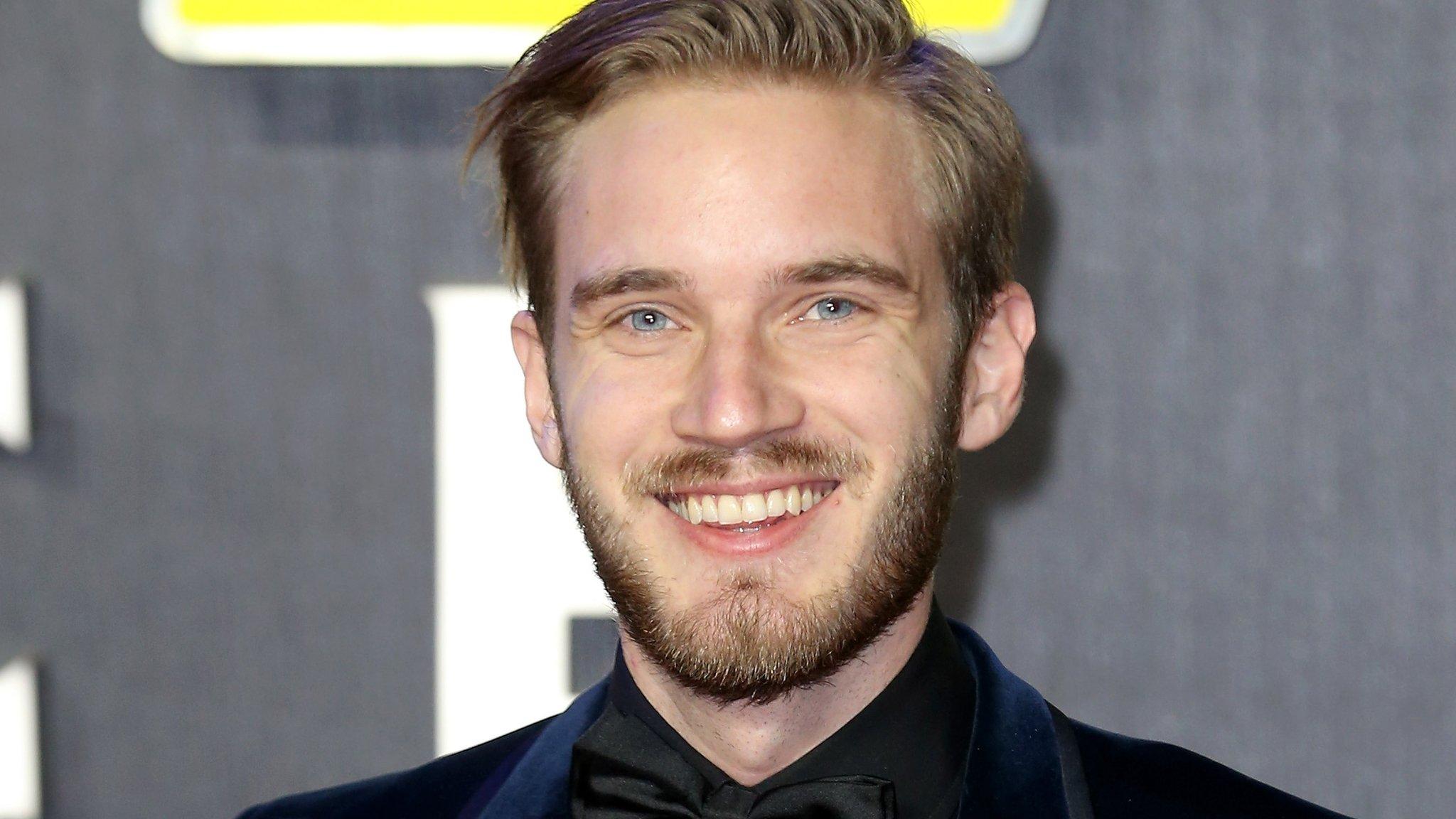
- Published4 August 2016
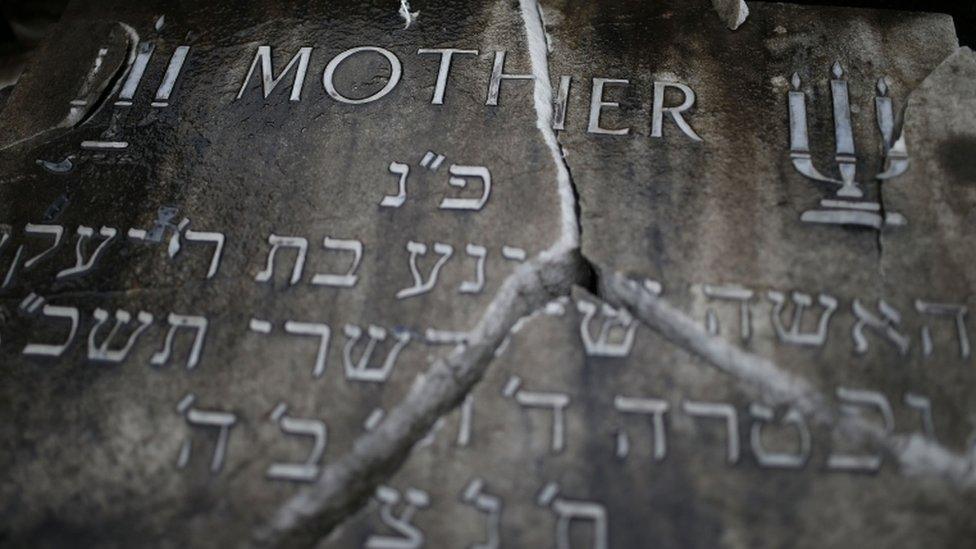
- Published1 August 2016
